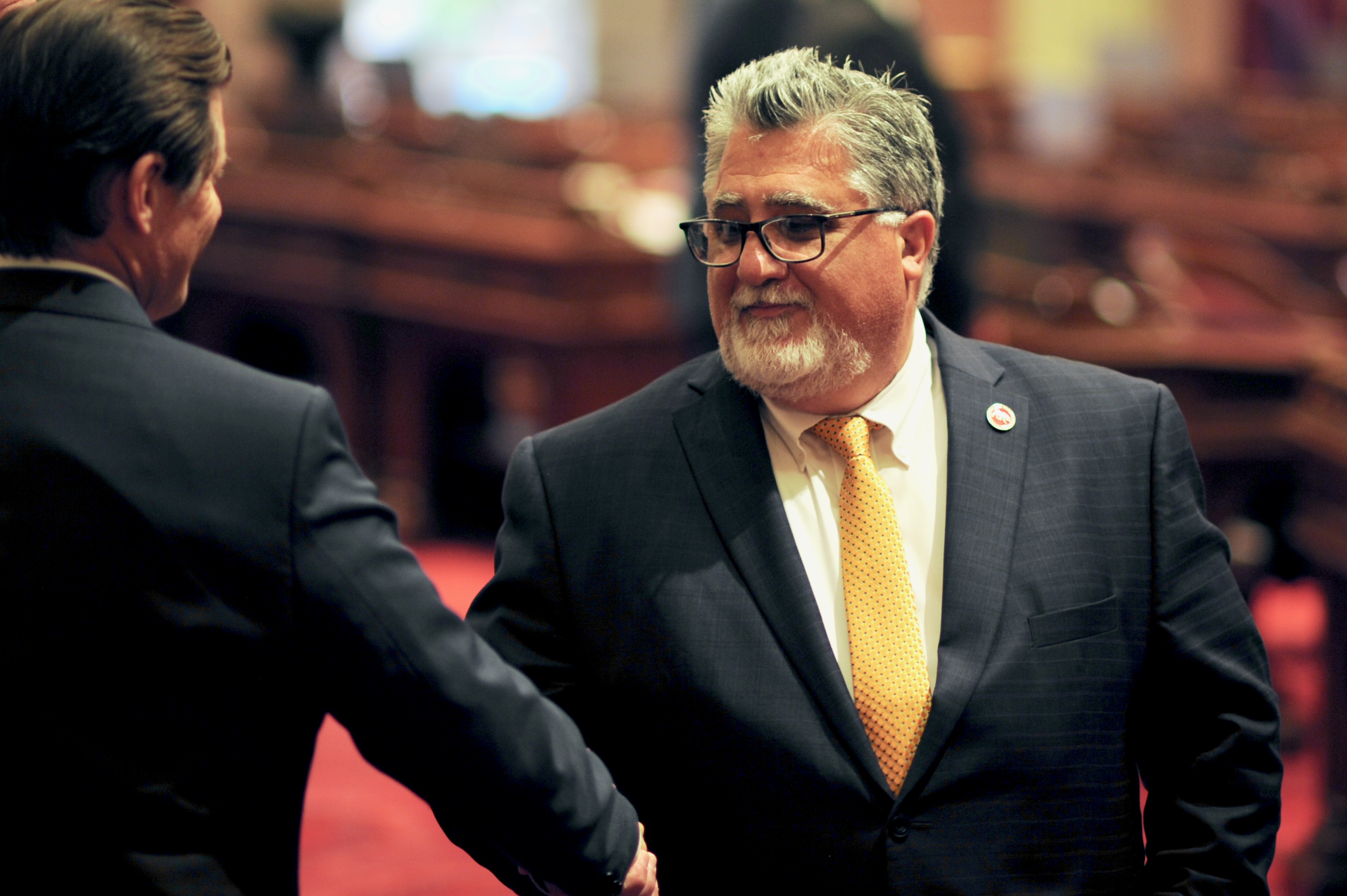
Then-Assemblyman Kevin McCarty, now Sacramento Mayor. (Photo: Kevin Sanders for California Globe)
Bill to allow formerly imprisoned felons to vote passes in the Assembly
If passed by the Senate, ACA 6 will be voted on by Californians in 2020
By Evan Symon, September 6, 2019 1:50 pm
Assembly Constitutional Amendment 6, which would allow paroled felons in the state to vote, has passed the assembly, and is on its way for a Senate vote.
The amendment had ten members of the Assembly introduce it: Assemblymembers Kevin McCarty (D-Sacramento), Wendy Carrillo (D-Los Angeles), Mike Gipson (D-Carson), Rob Bonta (D-Oakland), Lorena Gonzalez (D-San Diego), Ash Kalra (D-San Jose), Sydney Kamlager-Dove (D-Los Angeles), Kevin Mullin (D-San Mateo), Mark Stone (D-Monterey Bay), and Shirley Weber (D-San Diego).
Current law prohibits people with felony convictions on parole from voting in elections. Under ACA 6, also known as the Free the Vote Act, voting rights would be restored for them on completion of the prison term. According to the office of Assemblyman McCarty, over 48,000 Californians would have their voting rights restored.
Assemblyman McCarty and others in support of the bill have wide support for ACA 6. McCarty said the ACA 6 is a former prisoner’s right, citing it as removing a barrier to voting, reducing their chance to go to prison again by being engaged in the community.
“This comes down to doing the right thing by supporting our fight for voting justice and helping rehabilitate individuals back into our communities,” said McCarty in a statement. “This is also the smart thing to do by allowing Californians to become civically engaged, which we know reduces their likelihood to re-offend.”
Many groups, most notably the ACLU, have also charged that not allowing former felons on parole to vote is a form of racial injustice and voter suppression. The ACLU stated on Thursday “ACA 6 would address the history of racial oppression behind California’s felony disenfranchisement laws. Three of every four men leaving California prisons are either African American, Latino, or Asian American. Black Americans are four times more likely to experience felony disenfranchisement than are white Americans.”
ACA 6 also has detractors. Many law enforcement and citizens groups have come out against ACA 6, citing that it would not reduce former prisoners rates of going back to prison, and that a felony is a large enough crime to not allow someone to vote.
Election Integrity Project California, one such group opposing ACA 6, has argued fastidiously against the bill. “A period of parole gives the former criminal powerful reminders of what true liberty is by withholding just enough of it to incentivize further appropriate behavior so as to earn the rights just beyond the fingertip.” EIP said in an email.
Assemblywoman Melissa Melendez (R-Lake Elsinore) also opposed ACA 6, and posted this video debating the bill in the Assembly:
Currently in CA convicted felons have voting rights restored only once they complete their prison term and time on parole.
Today the Assembly passed ACA 6, which restores voting rights to convicted felons immediately upon release from prison. MM pic.twitter.com/X8JUn7L99D
— Melissa Melendez (@asmMelendez) September 6, 2019
If approved by the Senate and Governor, ACA 6 would go to the polls across California in 2020. And if passed in the election, California would be the seventeenth state in the United States to restore voting rights to paroled former felons.
- Bill to Require Law Enforcement Disclosure if AI Was Used To Help Write Reports - August 7, 2025
- Gov. Newsom Files FOIA Request To ‘Expose True Cost’ Of L.A. Federal Troop Deployment for Anti-ICE Riots - August 6, 2025
- California Redistricting: How Newsom’s Plan Will Demolish Hard Fought GOP Gains - August 6, 2025





“Many groups, most notably the ACLU, have also charged that not allowing former felons on parole to vote is a form of racial injustice and voter suppression.”
I wonder how the ACLU feels about restoring ex-felons 2nd Amendment right to own firearms.
OMG DO NOT PASS THIS BILL!
We keep taking away the laws that hinder criminal activity and it’s falicious and destructive.